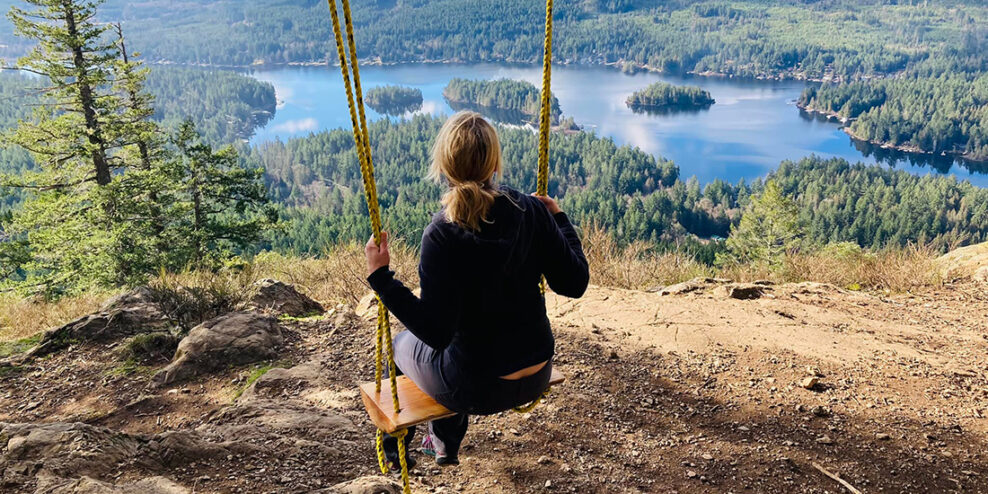BC doctors can now prescribe a national park pass to folks with physical or mental health issues.
The program is spearheaded by PaRX, a nature prescription program led by Vancouver family physician Dr. Melissa Lem.
A new partnership with Parks Canada lets registered licensed healthcare professionals give patients a free annual Parks Canada Discovery Pass.
“We have a standard recommendation, based on the latest research, that patients spend at least two hours a week in nature and at least 20 minutes each time,” said Dr. Lem in a recent Global News story. “So, this is all about breaking down those barriers to access to nature.”
You’d think in a place like Canada that everyone would be outside all the time. But we’re not. For some, money can be a barrier. For others, maybe their family focused on other things rather than spending time outside.
Maybe some kids—and grownups—spend too many hours in front of a screen.
Then there’s our culture. When we’re sick, we go to a doctor and get medication. That’s how it has been for a long time. Patients are used to leaving the doctor’s office with a prescription rather than a pass to a park.
But our culture is slowly changing. And so are the doctor’s orders.
Over the past year, PaRX has launched in Ontario, Manitoba, and Saskatchewan. There are now more than 1,000 healthcare practitioners across the country who are registered with the program.
Time in nature can lower the risk of diseases like diabetes and heart disease. There are also huge benefits for people who are suffering from depression and ADHD. For example, a 2008 University of Illinois study showed that a 20-minute walk in a park can improve concentration scores in kids with ADHD. A regular stroll in the woods can also relieve some anxiety.
Japanese doctors have been prescribing time outdoors for decades. Forty years ago, the Japanese Ministry of Agriculture, Forestry, and Fisheries coined the term shinrin-yoku, which means literally “forest bathing.”
Now, people all over the world go for forest baths. There are even shinrin-yoku guides.
Forest bathing is not some new-age, hocus pocus fad. There’s real science behind it. Trees—especially evergreens like pine, cedar, and spruce—release phytoncides, natural oils with anti-fungal and anti-bacterial properties. Phytoncides float in the air.
When humans breathe them in, they get all sorts of health benefits. A study of forest bathing published in 2016 in the journal, Evidence-Based Complementary and Alternative Medicine, showed that a walk in the woods can result in reduced pulse rates, anxiety, depression, and fatigue, among other benefits.
And according to Dr. Qing Li, author of Forest Bathing: How Trees Can Help You Find Health and Happiness, you only need to spend two hours a week in the forest to get the benefits.
Besides, who doesn’t feel better after a walk in the woods?
There are social benefits as well. Children and adults who spend time outdoors are more likely to fight for conservation, parks, and the environment. And we need those folks now more than ever.
A Parks Canada Discovery Pass usually costs about $72 per adult. There are seven national parks in BC. Two of them, Gulf Islands National Park Reserve and Pacific Rim National Park Reserve, are on or close to Vancouver Island.









